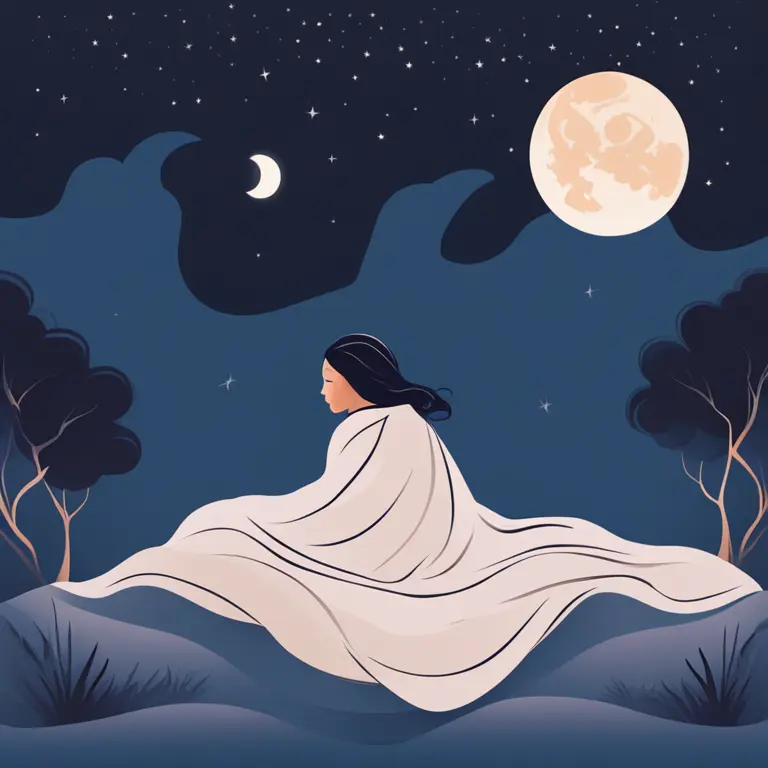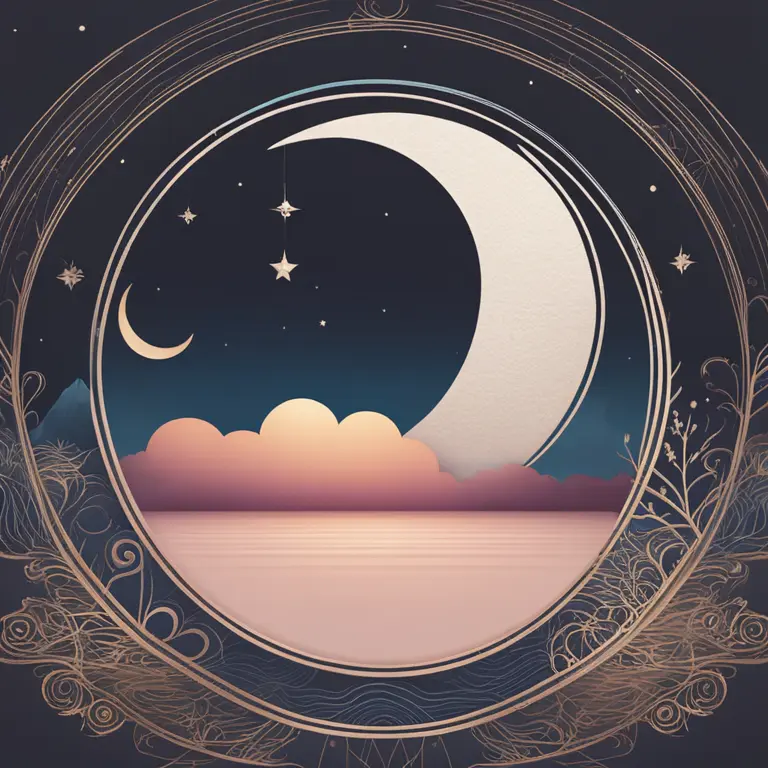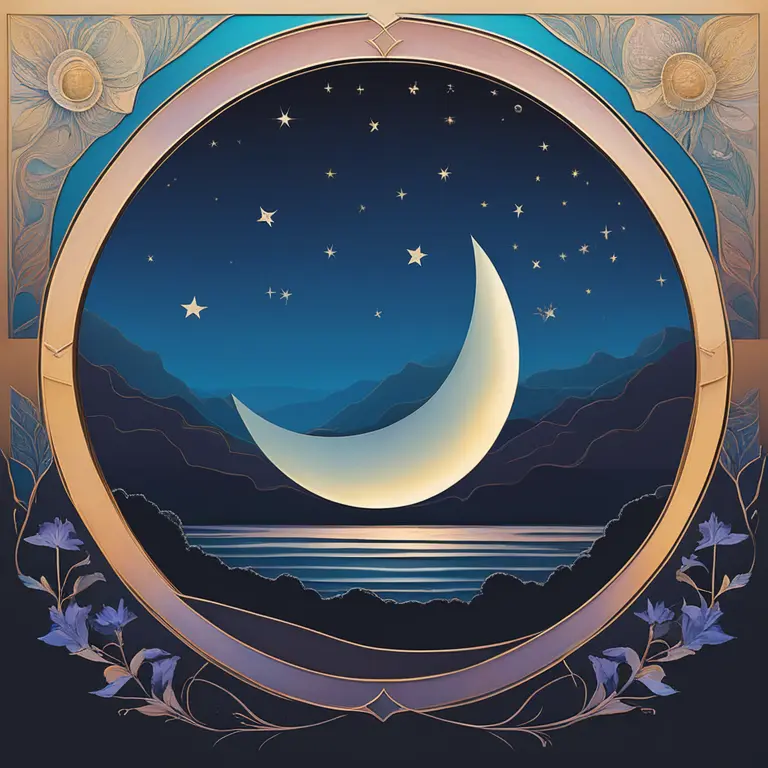
Moon Phases & Their Influence on Sleep Quality
Discover how the lunar cycle can impact your sleep quality and what the moon's phases signify for your night-time rest.
article by Priya Deshmukh
Moon Mystique & Slumber Cycles
The Moon has captivated humanity for millennia, not only as a celestial beacon in the night sky but also for its profound influence on our planet. Among these influences is the effect on sleep, a topic of both scientific inquiry and astrological interest. In this article, we will delve into the intriguing relationship between the moon's phases and our sleep patterns, shedding light on how this natural satellite could be swaying your slumber cycle. By understanding the lunar connection, we might find new methods to enhance our nightly rest in the years ahead.

New Moon Nights: A Blanket of Darkness
The start of the lunar cycle is marked by the New Moon, an enigmatic period where the Moon is in conjunction with the Sun and remains hidden from our view. It's during this time that people might find their sleep depth increasing, as the absence of moonlight ushers in a cloak of darkness. This profound darkness is thought to signal our bodies to produce more melatonin, the hormone responsible for inducing sleep, possibly leading to a deeper and more restorative night's rest, making the New Moon phase a potentially ideal time for resetting sleep patterns.

Waxing Crescent to First Quarter: A Gentle Glow
As the Moon transitions from a Waxing Crescent to a First Quarter, we see a gradual return of moonlight, which can stir changes in our sleeping habits. Some astrologists believe that this phase brings about a time of intention setting and new beginnings, which might translate into a period of restless sleep as our minds grapple with fresh ideas and aspirations. On the other hand, a small amount of moonlight can provide a calming effect for some, enhancing sleep quality as they derive comfort from the lunar glow piercing the night.

The Full Moon Effect: Brightness and Awakening
The Full Moon stands out as the most discussed phase concerning sleep, with its brilliant luminescence often blamed for sleep disturbances. Indeed, even some scientific studies have observed subtle changes in sleep quality during the Full Moon, potentially due to the increased light or the gravitational effects. Astrology posits that the Full Moon is a time of culmination and emotional highs, which may explain why some people experience vivid dreams or difficulty falling asleep as the subconscious becomes more active.

The Waning Moon’s Release
The period of the Waning Moon, including the Last Quarter to the Waning Crescent, symbolizes a time for release and forgiveness in astrological circles, paralleling the decrease in nocturnal illumination. As the moonlight diminishes, it is thought to be an opportune time for letting go of troubles, potentially leading to a deeper sense of peace and a conducive state for restful sleep. The diminishing light also lends itself to increased melatonin production, further encouraging a tranquil night.
Aligning Sleep With Lunar Wisdom
Embracing the wisdom of moon phases may offer a unique perspective in achieving a harmonious sleep cycle. For those who are open to experimenting, aligning your sleep routine in accordance with lunar patterns could be an intriguing exercise. Try reducing light exposure during the New Moon for deeper sleep, or embracing the Full Moon's energy for reflection and meditation. In doing so, it's possible to discover a more personalized and attuned approach to rest, aligned with the celestial rhythm.
Published: 1/19/2024
Modified: 1/19/2024
More predictions
Come back here soon to learn more about yourself and your future


The Phenomena of Moon Phase Eclipses
Delve into the captivating phenomena of moon phase eclipses and their astrological significance in this insightful article.


The Moon's Phase & Romantic Relationships
Discover how lunar cycles might influence romantic dynamics and interpersonal connections in this insightful article on moon phases and relationships.


How Moon Phases Impact on Life's Rhythms
Delve into the intriguing ways moon phases impact our lives, influencing everything from emotions to behaviors with celestial rhythm.